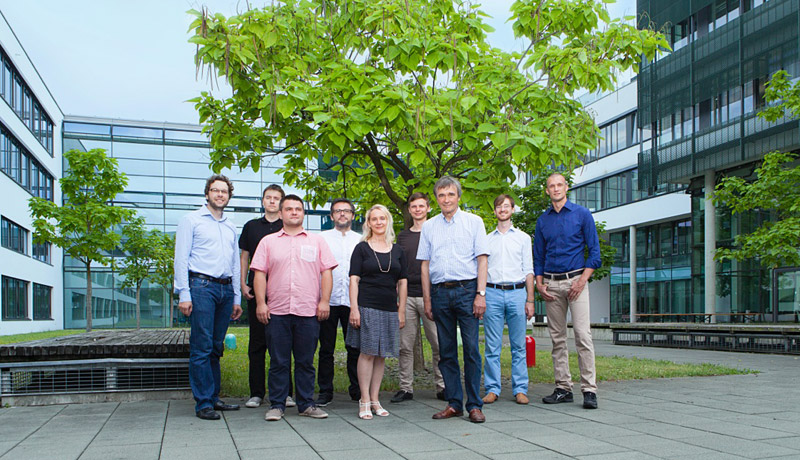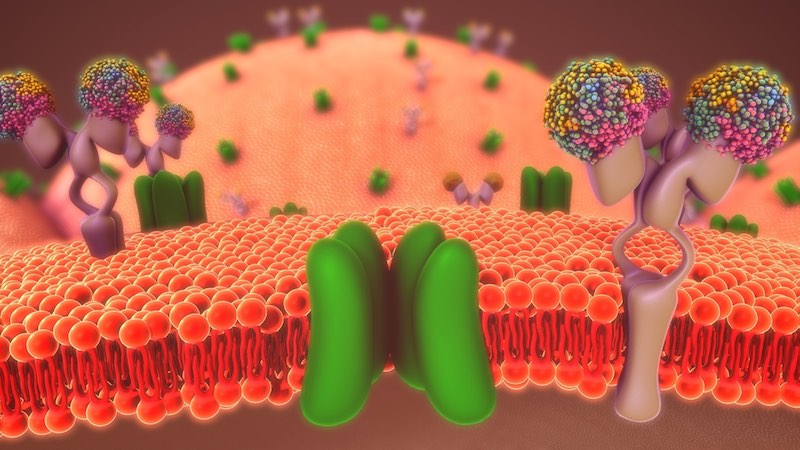If you haven’t heard of Kai Simons, his mile-long list of accomplishments will make you wonder why. He told us some of what he learned along the way.
Our Head of Business Development, Tom, was on the train from Paris to Lille for an intense day of sales meetings when he pulled up the bio of Kai Simons, who he was supposed to be meeting later that day.
He immediately called me, “Evelyn, do you know who this guy is? I’m meeting a maverick!” I wasn’t familiar with him either, but once I read his CV, I leapt at the chance for an interview.
While Tom was meeting him about his new company, Lipotype, Simons is also the founding director of the Max Planck Institute of Molecular Cell Biology and Genetics in Dresden and he was part of the leading team that built up the European Molecular Biology Laboratory (EMBL).
Originally from Finland, Kai Simons founded Lipotype in 2012 to explore lipidomics. Its team has now expanded to 13 people, mostly PhDs from Max Planck, and they are working to make big data in the lipid field useful for personalized health and medicine.
We sat down with him to talk about the challenges he has faced in omics and entrepreneurship.

What problem are you trying to solve?
We have developed mass spectrometry technology that analyzes lipids in high throughput, absolutely quantified with broad coverage – over 2000 lipid molecules can be analyzed. With this platform we provide customers unprecedented tools to study what lipids do in our cells, tissues and body fluids.
The big issue in the omics field is that billions are being spent both by grant agencies around the world as well as by companies, with little to show for it. Very few omics technologies, especially in phenotyping areas such proteomics and metabolomics, have delivered signatures that have made it into the clinic.
What is the problem? We think that one major issue is that the technologies used are not able to deliver absolutely quantified data that are robustly reproducible intra- and inter-site. Quality controls are lacking that guarantee validated data. If reproducibility is not guaranteed, the data are not useful for the clinical field. It is not possible to improve the quality of the analytical data by clever computational methods.
If the analytical procedures do not deliver data that are up to the standard required, then the study is of no real value. No reviewer of papers in the omics field can really control whether the output of big data sets is OK or not. In my opinion, we need rigorous and critical discussion on what is needed to improve this dismal situation.

In my biased view, Lipotype now has a technology platform that is up to the task. Our experienced team has spent 2 years automating the platform, writing new software that delivers validated data and introducing rigorous quality controls. Shotgun lipidomics has definite advantages that we hope will give us data that measures both personalized health and disease in a significant way, especially in the fields of obesity, diabetes, cardiovascular and liver disease
How did you get started as an entrepreneur?
Parallel to my academic career, I was a member of a number of scientific advisory boards in the 1990s and into the 2000s, where I saw how companies like Biogen and Sanofi work. I started another company of my own that eventually went broke — that taught me how not to start a company.
I saw the problem we had with the investors: they fund startups but really know little about what goes on regarding the science… The companies are forced to do things that make little sense, and then the money problems pile up. More investors have to be attracted, and this leads to too many divergent voices around the table; the company doesn’t survive the lack of creative decision making.
I was lucky to get stock options when I was at Biogen: I could then invest them to start Lipotype without outside investors so that we can make our own decisions. That’s a privilege, of course, but in this case it was my way of tackling the problem.

Tech transfer seems to pose another challenge for would-be entrepreneurs. Could you comment on how you find it in Germany?
Compared to the United States, Germany has a much shorter tradition in biotech. It was first at the end of the 1990s that venture capital became available for starting biotech companies. That means that that knowhow in management and tech transfer is recent here. Germany has great research in the molecular life sciences but what is lacking is a commercial culture of how to move ideas from the bench to proof of concept, and then onwards to a sellable commercial product.
In the 1990s, when I was at Biogen, Germany was considered to be out of bounds because regulations made it “impossible” to invest. This idea was clearly wrong, but that was the impression to the outside world. Today, with a number of successful biotech companies, the atmosphere has considerably improved. I think the future for biotechnology in Germany is bright but only by continuing learning and improving by doing!
Is your company’s service-oriented strategy born out of a similar conservative attitude?
Well, services bring us money, and that is, of course, essential for survival if I am the only investor. But we are well on our way to develop blood lipidomes into a personalized health measure. We plan to start another company to capitalize on that development and for that we will need investors.
If we were in United States, we would be able to generate much more money than we can in Germany. Here, we have to proceed in steps, which is possible because the pressure is not the same as in the United States. I find it extremely important that we have time to develop our unique platform so that it is really cutting edge. Only through quality we will be able to convince investors and our customers.

What advice would you give young scientists?
I think sometimes we ask too much from young scientists. If you have an app company, you can start right away and do what you do — most of the successful startups in Germany design apps. However, if you want to get into biotech, it becomes a lot more complex… It’s very rare that you can jump into this field and convince investors, especially because you don’t have the necessary knowhow and you have no network at the early stage of your career.
There are no 25 year-old prodigies in the biomedical field: it takes time to accumulate knowhow and come up with something new and worthy of becoming the foundation of a new company, not to mention experience. My advice for those who want to move from research and become entrepreneurs is to first seek employment in an existing biotech company and then learn by doing. This way you accumulate experience before you take the step to start your own company.
It is also important that you don’t move into mainstream areas such as oncology or genome sequencing. They are so overcrowded that the likelihood that you can bring something really competitive on the market is almost nil.. You have to look into new areas, into niches that are innovative.
Images from Lipotype and Bildagentur Zoonar GmbH, molekuul_be, sciencepics and venars.original / shutterstock.com





